|
JOE
BIDEN -
1st
PLASTIC FREE PRESIDENT
Please
use our A-Z INDEX
to navigate this site, where page links may lead to other sites
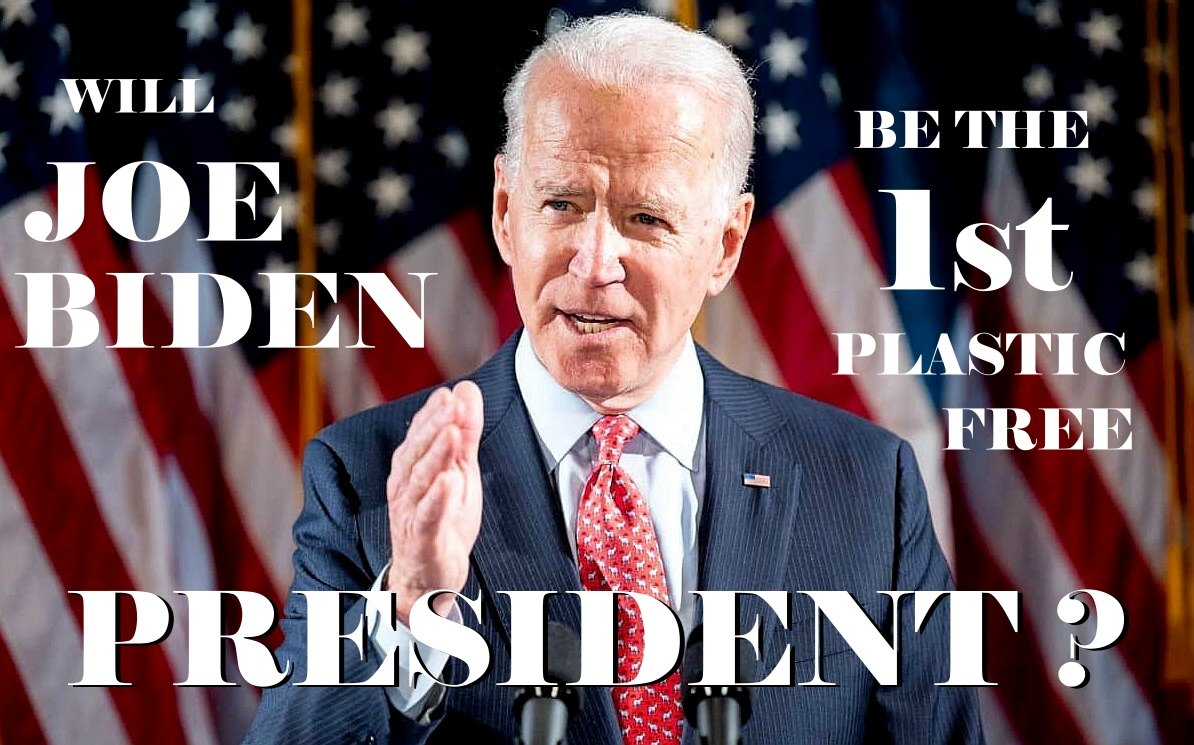
HIGH
HOPES FOR THE USA - There
are many reasons for reducing reliance on plastics. In the end
we hope that a sustainable economics argument may hold sway
over short term convenience. We're voting for #Joe
While
Donald
Trumpet was fostering his chum's bank accounts, a plastic
mountain was accumulating in the seas without any policy brakes being
applied. Indeed, the Trumpet put his foot on the pollution
accelerator pedal, reversing many of Barack
Obama's conservation efforts. The Cleaner Ocean Foundation
has put together a 7Seven
Point Plastic Plan, that they hope will be taken seriously
by the UN's members in all things sustainable, such as banning
the export of toxic waste.
Potentially
the first Plastic-Free President, other lobby groups are suggesting
an 8 Point Action Plan, that tackles the issue in other ways,
many of which echo the Foundation's thoughts, adding
great ideas to contain plastic production, etc. This is our 7
Point Plan:
7SEVEN
POINT PLAN (DRAFT) ARTICLES
1. Supermarket packaging transformation (back) to paper predominantly
2. Glass bottles,
metal cans, waxed cartons over plastic, unless genuinely biodegradable
3. Monitoring rivers and strict enforcement against
micro-fiber spillages from treatment plants
4. Trackers for fishing nets and strict enforcement for
dumping, unless accidents reported
5. Recycling of plastic to
95% with controlled incineration of non-reusable elements,
banks
6. Filtration on domestic machines to remove microfibers from clothing
7. Introduction of plastic credit (incentives) trading scheme to drive
the clean up
The US lobby group consists of 20 Convening Partners and over 550
Endorsing Partners has put an Eight Point Plan to President Joe
Biden, differing in approach markedly from our own, but
making equally valid observations:
1. Use the purchasing power of the federal government to eliminate single-use plastic items and replace them with reusable products.
2. Suspend and deny permits for new or expanded plastic production facilities, associated infrastructure projects, and exports. In the next 10 years, the petrochemical industry plans to increase plastics production by at least 35%, with more than 300 new projects slated for the
United States alone. Using cheap fracked gas, the new and expanded facilities planned by the industry produce raw material for an endless deluge of throwaway plastic, approximately 40%
of which is discarded within minutes. This dirty industry disproportionately fouls the
air and water of poor communities and communities of color.
3. Make corporate polluters pay and reject false solutions. Plastic producers must be held accountable for the plastic pollution they have created. Voluntary measures like Operation Clean Sweep, small scale financial contributions like the industry-backed ALLIANCE to End Plastic
Waste, and the plastics industry’s promotion of “chemical recycling” and “waste to energy” are all dangerous distractions from the massive, global plastic pollution problem we need to face. We
need to place the responsibility where it belongs: on the industry that generates the waste.
4. Advance environmental justice in petrochemical corridors. Petrochemical companies continue
to locate new and expanded plastics facilities near existing fossil fuel infrastructure,
which
means they are targeting the Gulf Coast,
Appalachia, the Ohio River Valley, and other communities that already shoulder a heavy burden of
oil, gas, and plastic industry pollution. Across the United States, these facilities are often located in and have a disproportionate
impact on low-income and minority neighborhoods.
5. Update existing federal regulations to curtail pollution from plastics facilities by using best
available science and technology.
6. Stop subsidizing plastics producers.
For too long, the United States has subsidized the fossil fuel industry. It’s time to stop the flow of financing to the
petrochemical industry and the oil and
gas industry that supplies its
feedstocks.
7. Join international efforts to address the global plastic pollution crisis through new
and strengthened multilateral agreements.
For many years, the U.S. government has hindered the work of a growing number of countries to enact new and strengthen existing global governance structures to address the plastic pollution crisis. It is time for the U.S. to become a proactive partner with key allies to address the global plastic crisis by targeting production, consumption, and disposal.
8. Reduce and mitigate the impacts of discarded and lost fishing gear.
Abandoned, lost or otherwise discarded fishing
gear, including gillnets and
fishing traps/pots causes ecological and economic harms. This
fishing gear is often called “ghost gear” because long after it is lost it entangles, captures, and kills
sea
turtles, seabirds, marine mammals, and fish. It changes the marine environment, poses navigational hazards, introduces plastic into the marine food web, and creates a persistent marine debris and pollution problem, with high cleanup
costs.

To: President Joseph Biden
From: [Your Name]
Dear President-Elect Biden,
The world faces an indisputable plastic pollution crisis. More than 99% of plastic is made from fossil fuels, and fracked gas is fueling an unprecedented boom in plastic production. Plastic is an environmental nightmare at every step of its life cycle.
Plastic production fuels the climate crisis, increasing greenhouse gas emissions and harming local communities with toxic air and water pollution.
Plastic pollutes and kills wildlife. It fills our rivers and oceans, chokes out wildlife, threatens public health, permeates our drinking water, and persists in the environment for centuries.
The solution to plastic pollution is clear: reduce the amount of unnecessary plastic produced. We can transform our extractive, throwaway economy to a regenerative, inclusive one that’s good for our country and creates U.S. jobs.
President Biden: we urge you to take the eight crucial actions outlined in the Presidential Plastics Action Plan, supported by more than 550 organizations. These actions will immediately set the nation on a pathway to a plastic-pollution-free future while longer-term measures that require action at all levels of government and society are developed.
Plastic pollution kills. We urge you to be a champion for communities, wildlife, and our future generations.
President Biden: be a #PlasticFreePresident.
|
FOODPRINT JANUARY 2021 - Will Joe Biden tackle single-use plastics?
The amount of plastic flowing into the ocean each year will triple — to 29 million tons — without drastic action.
When then Presidential-candidate Joe Biden told the crowd at an Iowa campaign stop in 2019 that plastic should be phased out, the announcement was met with applause. He promised then to "[treat] the climate crisis like the existential threat that it is" and as his administration gets underway, voters expect him to deliver, calling on Biden to be the first #PlasticFreePresident.
"Now we have a president who is concerned about environmental issues and wants to be engaged in the global community," says Sarah J. Morath, a law professor at Wake Forest University and author of the forthcoming book,
"Our Plastic Problem: Costs and Solutions." "There is a potential to enact legislation and be involved in efforts at the international level to address environmental issues."
A coalition of 550 conservation groups, including Greenpeace, Beyond Plastics, Surfrider Foundation and the Center for International Environmental Law, just released a Presidential Plastics Action Plan that includes eight actions the federal government could take to help mitigate plastic pollution. The action items include eliminating subsidies for plastic producers, suspending permits for new or expanded plastic production facilities, and supporting public health and fair labor initiatives in communities that suffer adversely from plastic production.
The group, part of a Break Free From Plastic movement, calls on the president in this action plan to "transform our extractive, throwaway economy to a regenerative inclusive one," in order to charter a path toward a pollution-free future.
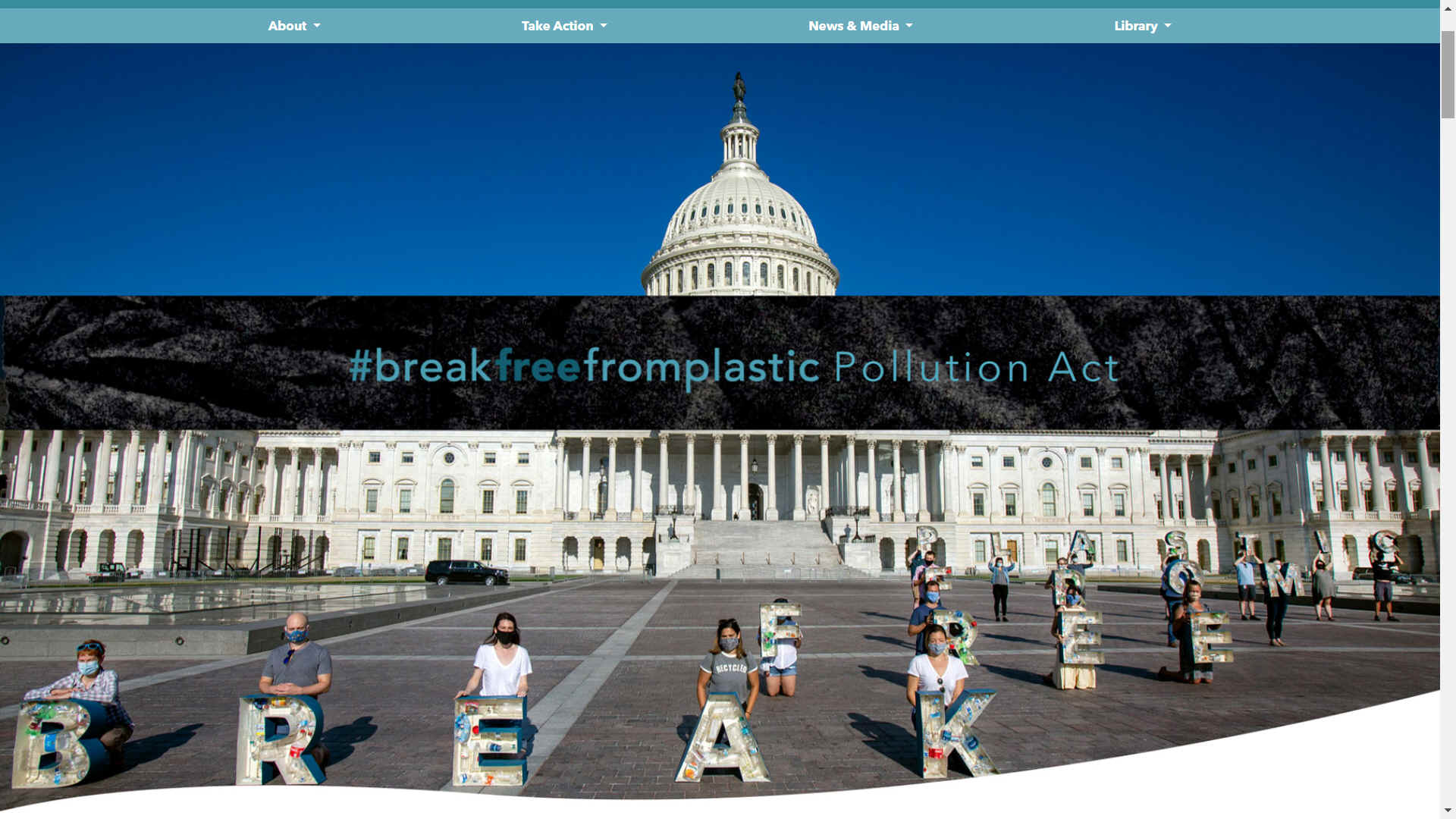
PLASTIC
INDEPENDENCE DAY - The Break Free From Plastic Pollution Act of 2021
(BFFPPA) builds on successful statewide laws across the U.S. and outlines practical plastic reduction strategies to realize a healthier, more sustainable, and more equitable future. The federal bill, which is sponsored by Sen. Jeff Merkley (OR) and Rep. Alan Lowenthal (CA), represents the most comprehensive set of policy solutions to the plastic pollution crisis ever introduced in Congress.
Getting back on the right track
The need to address plastics pollution is dire, according to new research from the Pew Charitable Trusts that found the amount of plastic flowing into the ocean each year will triple — to 29 million tons — unless drastic action is taken.
The coronavirus pandemic exacerbated the issue. In addition to the need for single-use personal protective equipment, including 129 billion face masks and 65 billion gloves used each month, more consumers ordered takeout and had their groceries delivered during the pandemic. Compounding the problem, several cities and states reversed or delayed efforts like plastic bag bans — and, so far, most have not reinstated their bans.
The collapsing oil market also contributed to an increase in single-use plastics, which made manufacturing virgin plastics cheaper than recycling. By 2030, the production and disposal of plastics is expected to generate 1.34 gigatons of emissions per year, which is the equivalent of operating 295 coal-powered plants.
Even though the United States is the biggest global producer of plastic waste, generating about 42 million metric tons that flows into the ocean annually, the Trump administration ended efforts to eliminate the sale of plastic water bottles in national parks, propped up petrochemical companies through repeated rollbacks of environmental regulations, withdrew from the Paris climate agreement, and blamed Asian countries for ocean plastic pollution.
"We've seen how much the Trump administration reversed in four years . . . when everything was going in the wrong direction and it feels like we missed out on all of the progress we should have been making and even lost ground," says Maine Congresswoman Chellie Pingree. "I think Biden can get us on the right track, especially if we get started early and have four years of changing our behavior [and] our standards."
In 2020, legislators introduced the Break Free From Plastic Pollution Act to mandate reductions in single-use plastics. Pingree, who co-sponsored the legislation, believes federal laws are essential for curbing plastics pollution, explaining, "plastics have become such a dire issue that I think if we don't have some federal intervention, we're not going to solve the problem quickly enough."
Legislation is not enough
While federal legislation can help address plastic pollution, companies must also do their part to tackle the issue, according to Sybil Bullock, global brand audit coordinator for Break Free From Plastic.
As part of the 2020 Brand Audit Report, volunteers in 55 countries collected almost 350,000 pieces of plastic waste and cataloged those marked with clear consumer brands to come up with its top global polluters list, which included companies like
Coca-Cola,
PepsiCo, Unilever, Nestle and Philip Morris International.
Like other organizations working to reduce plastic pollution, Break Free From Plastic wants companies to set clear, measurable targets for reducing single-use plastics and reinvent their packaging to eliminate these items from the waste stream altogether — and some companies are making an effort.
"Even if [consumers] were to avoid buying plastic and recycle as much as possible, it will never be enough at the rate that corporations are continuing to extract massive amounts of fossil fuels to manufacture a growing amount of single-use plastics," Bullock says. "These corporations have huge budgets, massive research and design teams and . . . the power to redesign the way you deliver your products."
Several of the "top polluters" listed in the Break Free From Plastic report are participating in Loop, a service that uses refillable packaging to provide zero-waste versions of popular brands. PepsiCo plans to roll out a new recyclable, PET-free paper bottle manufactured from sustainably sourced pulp; Poland Spring, a Nestle brand, is collaborating with researchers at the University of Maine to develop bio-based packaging for its bottled water and startup Notpla developed a pod made from plant materials like seaweed that could replace single-serving condiment packets.
"Despite Trump [pushing deregulation] . . . businesses have still been focused on reducing their carbon dioxide emissions," Morath notes. "If businesses continue to focus on reducing their plastic waste or thinking about alternative feedstocks or reducing packaging on their own . . . it will make it easier for the government to partner."
Both the Presidential Plastics Action Plan and the Break Free From Plastic Pollution Act address the need for private companies to step up and suggest legislative actions that can force their participation, including holding plastics manufacturers accountable for waste through fines and investigating (and prosecuting) violators.
Pingree points to the "extended producer responsibility" clause as one of the most important elements of the Break Free From Plastic Pollution Act, explaining, "it puts the onus back on the entities that either use plastic packaging or are manufacturing it."
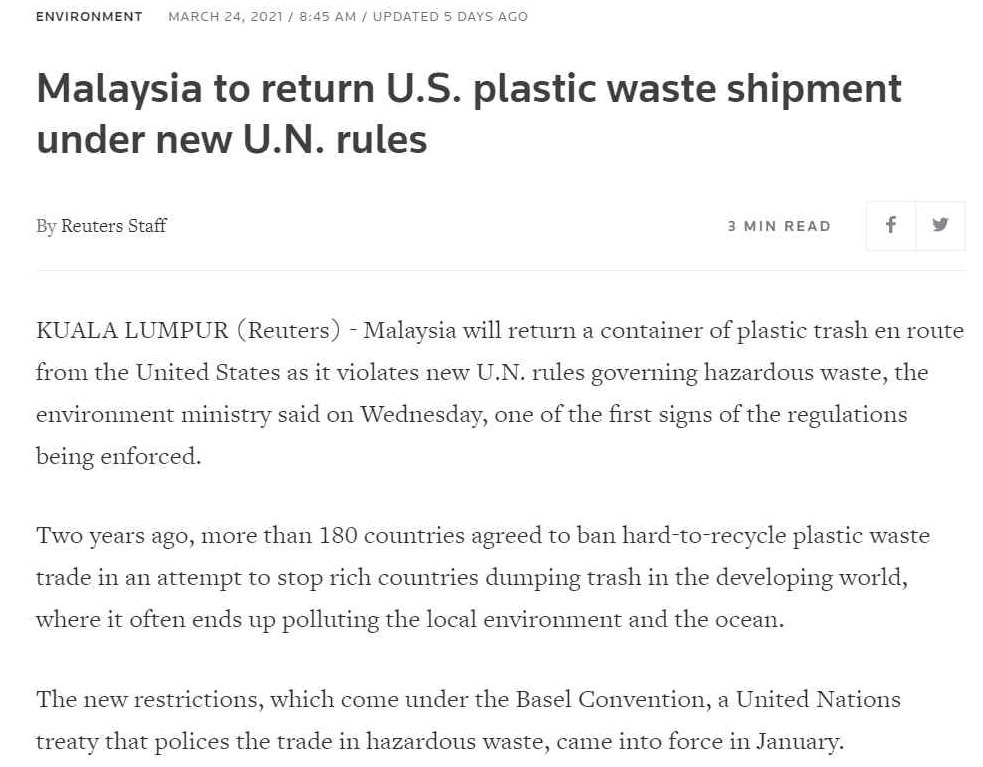
REUTERS
24 MARCH 2021 - KUALA LUMPUR (Reuters) - Malaysia will return a container of plastic trash en route from the United States as it violates new U.N. rules governing hazardous waste, the environment ministry said on Wednesday, one of the first signs of the regulations being enforced.
Two years ago, more than 180 countries agreed to ban hard-to-recycle plastic waste trade in an attempt to stop rich countries dumping trash in the developing world, where it often ends up polluting the local environment and the ocean.
The new restrictions, which come under the Basel Convention, a United Nations treaty that polices the trade in hazardous waste, came into force in January.
Signatory countries can now only trade plastic waste if it meets certain low-contamination criteria - which means it is clean, sorted and easy-to-recycle - or if the exporting country gets prior consent from the importing country.
Mohamad Khalil Zaiyany Sumiran, the environment ministry’s spokesman, told Reuters a shipment was on its way from the United States, that authorities have said did not meet that criteria or have prior approval to be imported into Malaysia.
“After investigations, Malaysia will send back the container to the origin country,” said Mohamad Khalil, adding that it was unclear when the shipment would arrive.
Malaysia’s environment minister Tuan Ibrahim Tuan Man had said in a statement on Saturday that authorities would bar the container, which was shipped from Los Angeles, California on March 14.
The United States, which produces more plastic waste per capita than any other country, is the only major nation not to have ratified the Basel Convention and is not bound by its rules. However, under the treaty, Malaysia cannot accept prohibited plastic waste from the United States.
Malaysia, which became the leading destination for the world’s plastic trash after China banned imports in 2018, has returned thousands of tonnes of plastic scrap since then.
The Basel Action Network, an NGO, said this month that contaminated plastic waste trade was still flowing despite the new U.N. rules, highlighting the high volume being shipped from the United States to Malaysia.
Holding polluters (and presidents) accountable
Voters are aware of the issues, too. In fact, consumer demand has driven much of the innovation aimed at addressing single-use plastics waste. One global report found that 43.3 % of consumers believed manufacturers should take the lead when it comes to reducing plastic waste; additional research showed that 74% of consumers are willing to spend more for products with sustainable packaging.
The market demand — and a willingness to vote on environmental issues — could help spur legislation, Pingree notes.
"Sometimes Congress follows what big companies do . . . as businesses set examples, it makes it easier for members of Congress to go along with that because they can say, 'Oh, this company has already proven it's economically viable,'" Pingree notes.
Biden has been vocal about the need to address climate change, lending hope that he could become the #PlasticFreePresident. His pick for the first national climate advisor, Gina McCarthy, the former president and CEO of the Natural Resources Defense Council, has also spoken out about the need to address climate change, writing, "The climate crisis is already hitting us hard, and it will hit us even harder unless we take bold action now."
Making a significant dent in plastic pollution will require strong federal legislation, including the passing of the Break Free from Plastics Pollution Act and executive orders to tackle the issues laid out in the Presidential Plastics Action Plan. Even so, it could take longer than one — or two — terms in office to address plastic pollution.
"The plastic pollution crisis is a structural failure," Bullock says. "We cannot anticipate bolder, more serious commitments from these companies without bold serious commitment from the government to help us hold these companies accountable."
By JODI HELMER (article originated from FoodPrint Janaury 2021)
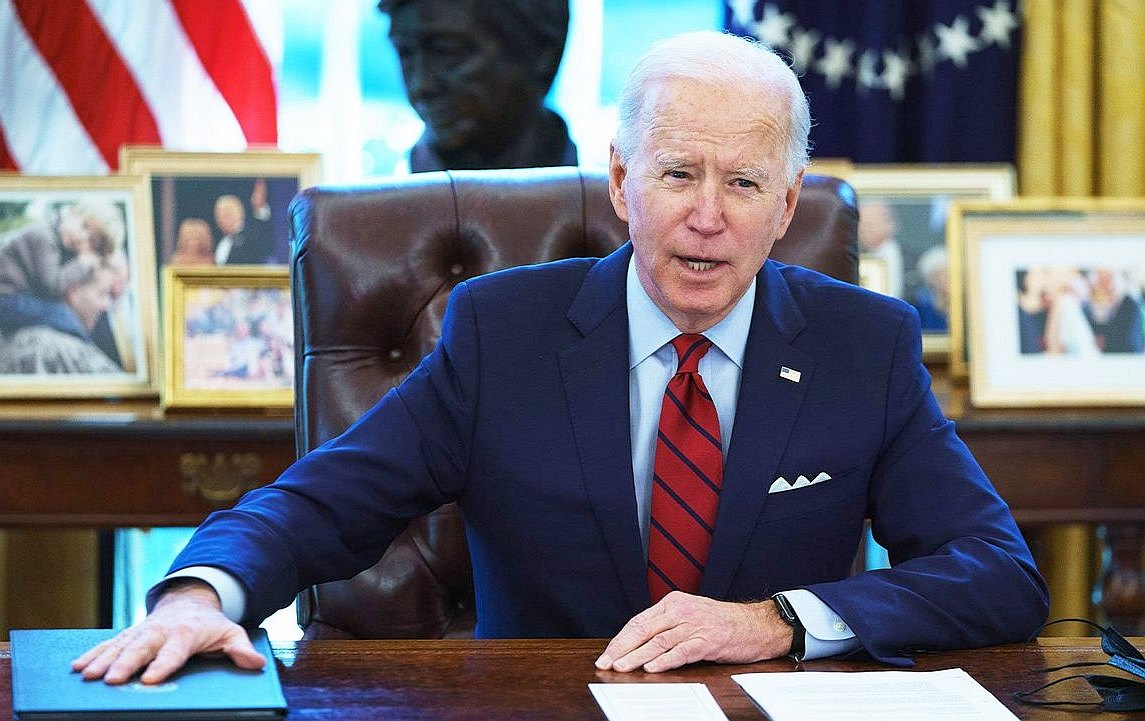
OCEAN
HEALTH - Looking
better now than he did many years ago, President elect, Joe
Biden comes into the frame promising to get the Paris climate
agreement back on the rails. Nice one Joe. We have high hopes
that he'll also want to secure fish health as part of food
security plan.
GIZMODO.COM.AU 20 JANUARY 2021 - The Biggest Thing Missing From Joe Biden’s Climate Plan: Plastic
US President-elect Joe Biden has promised to decarbonise the U.S.
electricity grid by 2035 and implement a host of other climate policies, which in theory would discourage
fossil fuel companies from extracting more
oil and
gas. But instead, it could just push them to find other uses for their products: Specifically, plastic — unless his administration comes up with a plan to stop them from doing so.
The industry is already banking on plastic to save itself amid decreasing fuel demand and an increase in sustainable
energy policies around the world. According to the International Energy Agency, plastic and other petrochemicals currently account for 14% of global oil use. But if growth trends continue, they’re expected to drive half of the world’s oil demand growth by 2050.
Left unchecked, all that plastic will pose huge challenges for the
planet, polluting the oceans and wreaking havoc on public health with toxic emissions from production plants and the incinerators and landfills used to dispose of it, all of which are often constructed in poor communities of
colour. It will also exacerbate the climate crisis: Conservative predictions show that plastic production and incineration will produce 300
coal plants-worth of
greenhouses gases by 2030 and that by 2050, that pollution output could double.
Despite these clear impacts on the climate, public health, and nature, Biden hasn’t made many promises to quell plastic production. The president-elect’s climate plan makes no mention of plastic’s
greenhouse gas emissions, only briefly acknowledging that ocean pollution poses a threat. On the campaign trail, Biden said the country should phase out plastic shopping bags, but didn’t say much else about curbing production.
“Plastic pollution has not yet been directly addressed by the Biden administration, but I am hopeful that they will recognise that you cannot solve the climate change crisis without addressing the production of plastics,” Judith
Enck, a former Environmental Protection Agency regional administrator and president of Beyond Plastics, said in an email.
One of the first steps Biden’s administration could take to show it’s serious about taking on plastic pollution is to block the construction of a $US9.4 ($12) billion chemical complex in Saint James Parish, a highly polluted part of Louisiana. The plant would be one of the largest plastic production facilities in the country. A ProPublica investigation found that the new plant’s emissions will more than triple residents’ exposure to cancer-causing chemicals, and the Louisiana Department of Environmental quality permitted the facility to release as much greenhouse gases as three and a half coal fired power stations. Since Biden has promised to create a new division of the Justice Department to focus on environmental justice and has otherwise pledged to centre environmental justice in his presidency, his administration could put a stop to the project because of its projected effects.
“The water permit [for the proposed facility] is under consideration right now by the Army Corps of Engineers,” Anne
Rolfes, executive director of environmental justice nonprofit Louisiana Bucket Brigade, said. “I would like the Biden administration to direct the Army Corps of Engineers to deny the permit based on the egregious impacts to the Black community in Saint James Parish.”
But stopping one facility isn’t enough to turn the tide. In December, the Centre for Biological Diversity and more than 550 other environmental advocacy groups released a draft plastics strategy called the Presidential Plastics Action Plan, and called on Biden to adopt it. The plan includes suspending and denying permits for all new or expanded plastic production facilities.
‘There’s been a real attempt by [the plastic] industry to greenwash their role in the climate crisis,” Julie Teel
Simmonds, senior attorney at the Centre for Biological Diversity’s oceans program, said, noting that the industry has instead put the onus on individuals to clean up the mess through “better consumer behaviour and better waste management.”
Of course, there’s basically no way the Biden administration could completely stop all plastic production over the course of just four years. That means it will also have to start working on policies to sustainably dispose of the plastic already out there. In practice that means ending chemical recycling and incineration, both methods that create toxic pollution that most often plague poor communities of
colour. Instead, the Presidential Plastics Action Plan suggests that regulators to work with the National Institute of Standards and Technology to set minimum recycled content standards for single-use plastics, and charge the Environmental Protection Agency with creating better systems to track how much cities, states, and companies are actually reducing their plastic consumption and improving their recycling programs.
These actions, the groups say, are all possible even without the support of Congress. But with Democrats controlling the Senate and the House, there’s even more the administration could do to urgently curb the plastic crisis.
“Congress could unleash more dollars for research and development for better recycling and reuse programs and other things. That is much easier when you have the branches working together,” Simmonds said.
Though Biden hasn’t put much focus on the plastic crisis yet, if he’s serious about curbing the climate crisis and boosting environmental justice, he will have to do so. Denise Patel, U.S. program director at the Global Alliance for Incinerator Alternatives, said his administration should make it a major priority from day one since environmental pollution from plastic plants and incinerators could also make nearby communities more vulnerable to covid-19.
“We’re seeing that covid-related deaths are really high in Black and brown communities across the U.S., particularly because a lot of these communities have pre-existing conditions that relate back to polluting industries like fossil fuel extraction, plastics production facilities, and waste burning,” she said. “This is an opportunity for some bold action that could immediately improve public health, and the Biden administration should take it.”
By Dharna Noor
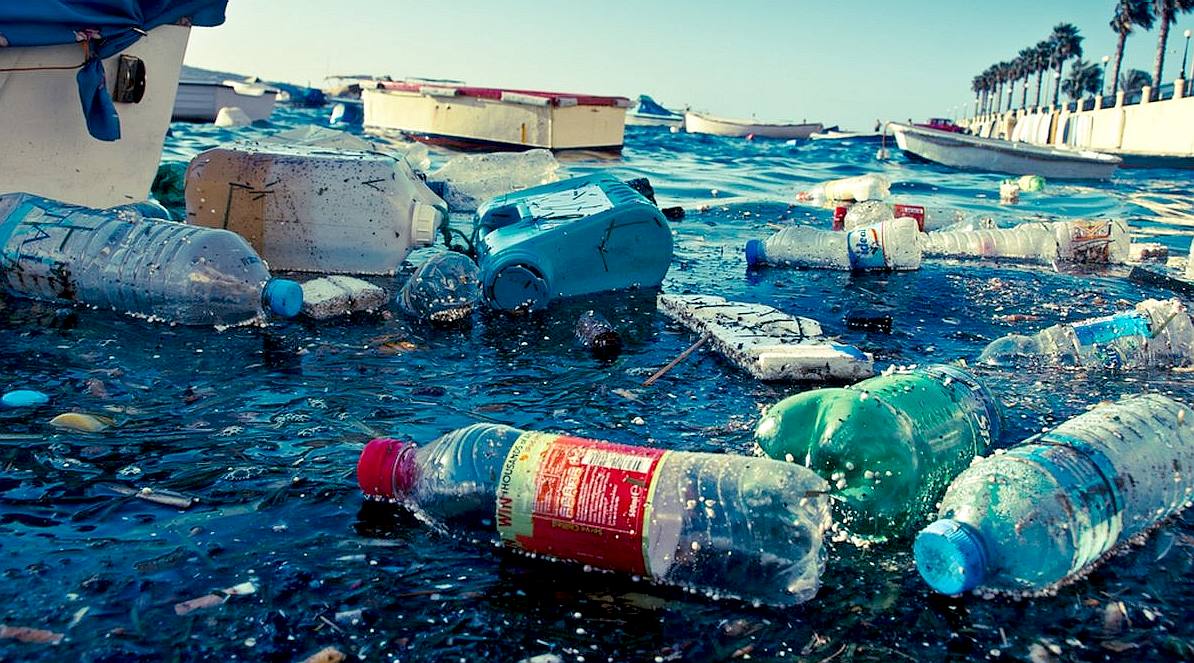
WHAT
A WASTE
- Governments
are unwilling to commit resources to recover the millions of
tons of toxic plastic that is already in our oceans, even
where it threatens long term food security and biodiversity.
LOS ANGELES TIME 3 JANUARY 2021 - PLASTIC TRASH IS NOT JUST LITTER, IT'S CLIMATE CHANGE TOO
President-elect Joe Biden will have a long to-do list the moment he takes over the White House this month. Plastic trash should be one of his priorities. Here’s why.
Single-use plastic is a climate change issue — as well as an observable, measurable menace to the environment that has only been exacerbated by the pandemic and the need for plastic protective gear. Most plastic is made from fossil fuels, and millions of tons of greenhouse gas emissions are released from the extraction of these resources, and the manufacture and incineration of plastic.
The end life of plastic is just as concerning. Very little of the plastic produced has been recycled, less than 10%. Even more of it has been burned. But the vast majority has been left to molder in landfills and, increasingly, pollute the environment. We hear mostly about ocean plastic and the harm done to marine life that mistakes plastic bags and bits for food. But microplastic is even more worrisome. Plastic doesn’t biodegrade but instead breaks down into tiny particles, which have been found in every corner of the planet, on land and in the
air, in drinking
water and food sources, and, ominously, in the placentas of unborn fetuses.
We don’t yet have good data about what that means for human health, but considering the toxins used in manufacturing plastic — benzene, lead, endocrine-interrupting phthalates, just to name a few — it can’t be good.
Yet, frustratingly, Congress and past presidents have not given this global environmental disaster the attention it requires. Instead, they have viewed single-use plastic — which constitutes about 40% of plastic used each year — as a litter issue that local governments must solve through better recycling and waste management policies. That attitude must change, because the recent global breakdown of the market for recyclables has made it clear that recycling has never been, nor ever will be, able to keep up with plastic trash use.
What can be done?
That has long been on the minds of environmentalists, who have been lobbying for federal action to reduce disposable plastic for years. To that end, more than 600 environmental, social justice and community organizations have signed on to a sweeping plan that focuses on executive action that Biden can take immediately. So far, Congress has been unwilling to consider serious action on reducing plastic production, perhaps cowed by the powerful
petrochemical lobby. The only significant plastic-reduction legislation last year, the Break Free From Plastic Pollution Act, could not even get a hearing in the Senate.
Meanwhile, things are about to get worse. The petroleum industry is pivoting to increased plastic production, with some 30 new plastic-making facilities in the works in the U.S., according to the Center for Biological Diversity. (Among the reasons community and social justice organizations have become involved is that industrial
pollution disproportionately affects low-income communities.)
The plan outlines eight steps that include directing federal agencies to use the power of procurement to reduce the amount of disposable plastic they buy, denying permits for expansion of plastic-making facilities and joining international efforts with new or strengthened multilateral agreements aimed at reducing single-use plastic. It’s a good blueprint, but Biden’s team should also look to California for inspiration.
California has been the leader on reducing plastic waste and was the first state to ban single-use plastic bags (a ban that was temporarily rescinded last year as a pandemic measure) and may well be the first state to transform the way goods are packaged. The state Legislature came tantalizingly close to passing the groundbreaking California
Circular Economy and Plastic Pollution Reduction Act in 2020, which would have required that products sold in plastic packaging in the state have a proven recycling or composting rate of 75% by 2032. The proposal is still very much alive, and if the Legislature doesn’t pass it in 2021 — though it should — a similar proposal is likely to be on the 2022 statewide ballot.
But California, while influential, can’t solve this crisis alone. The U.S. has been a leader in producing plastic trash; it should be a leader in reducing it as well.
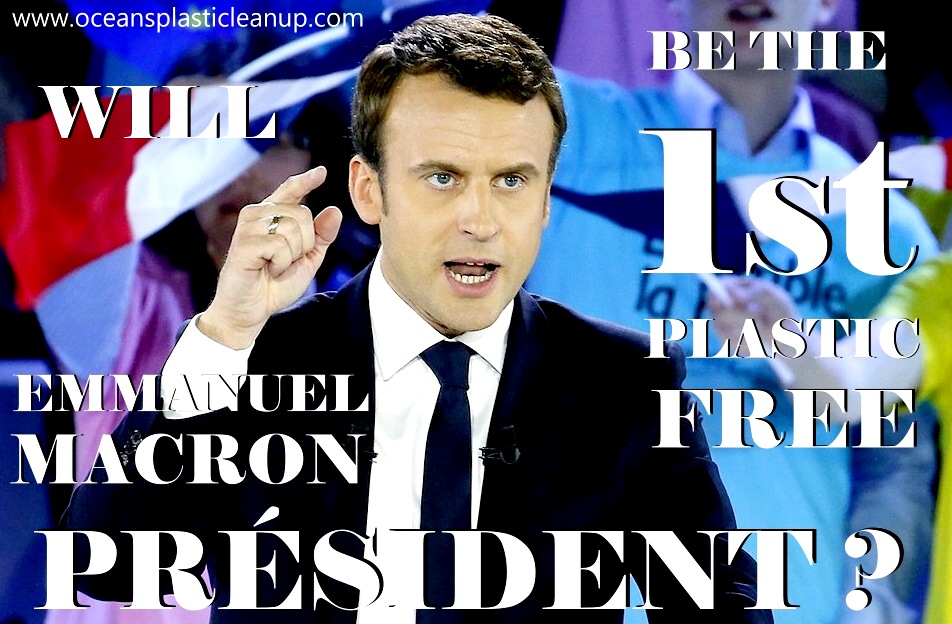 
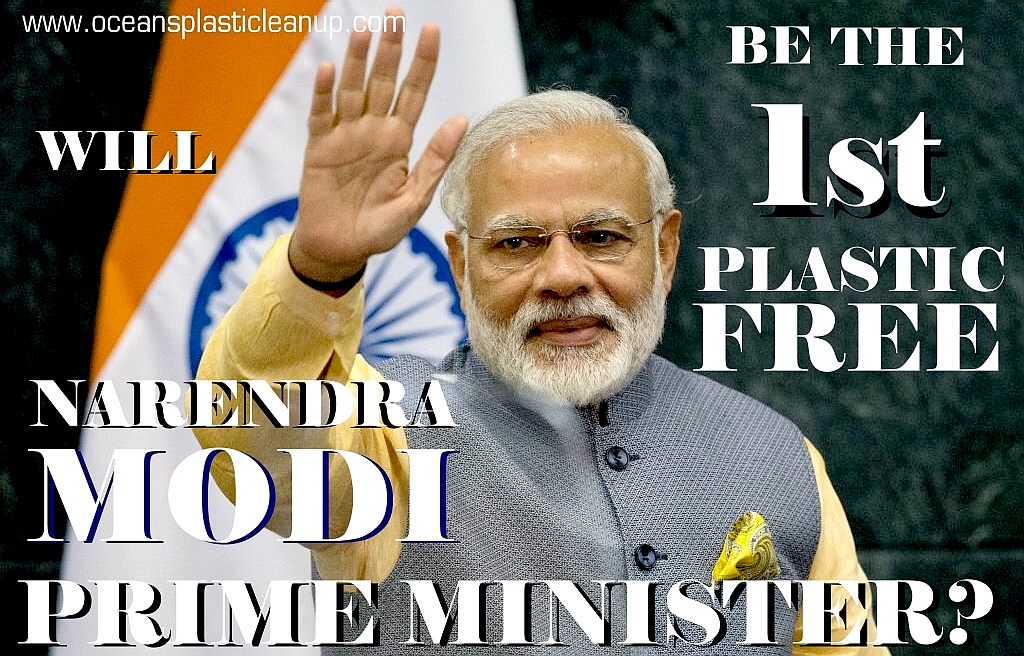 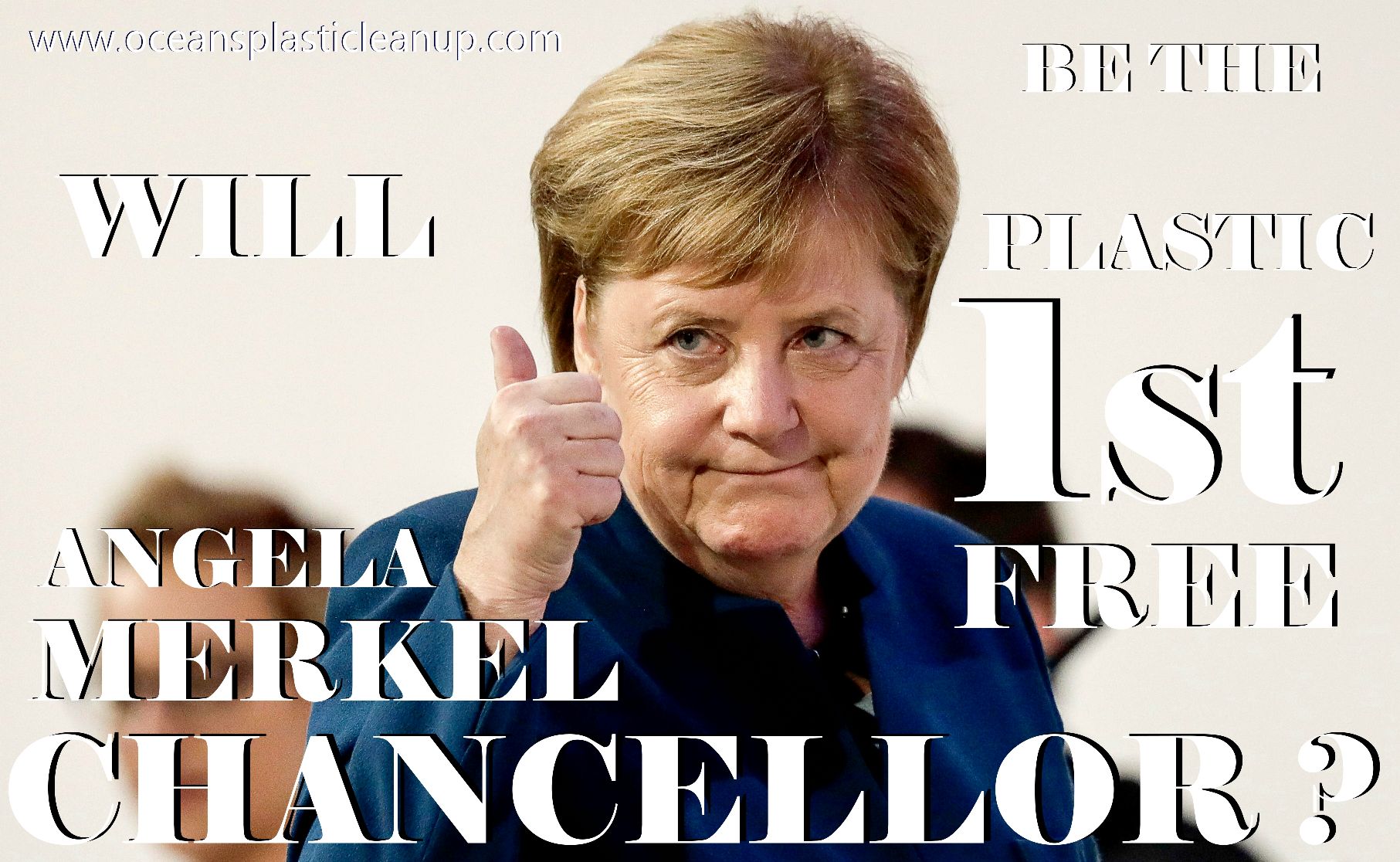
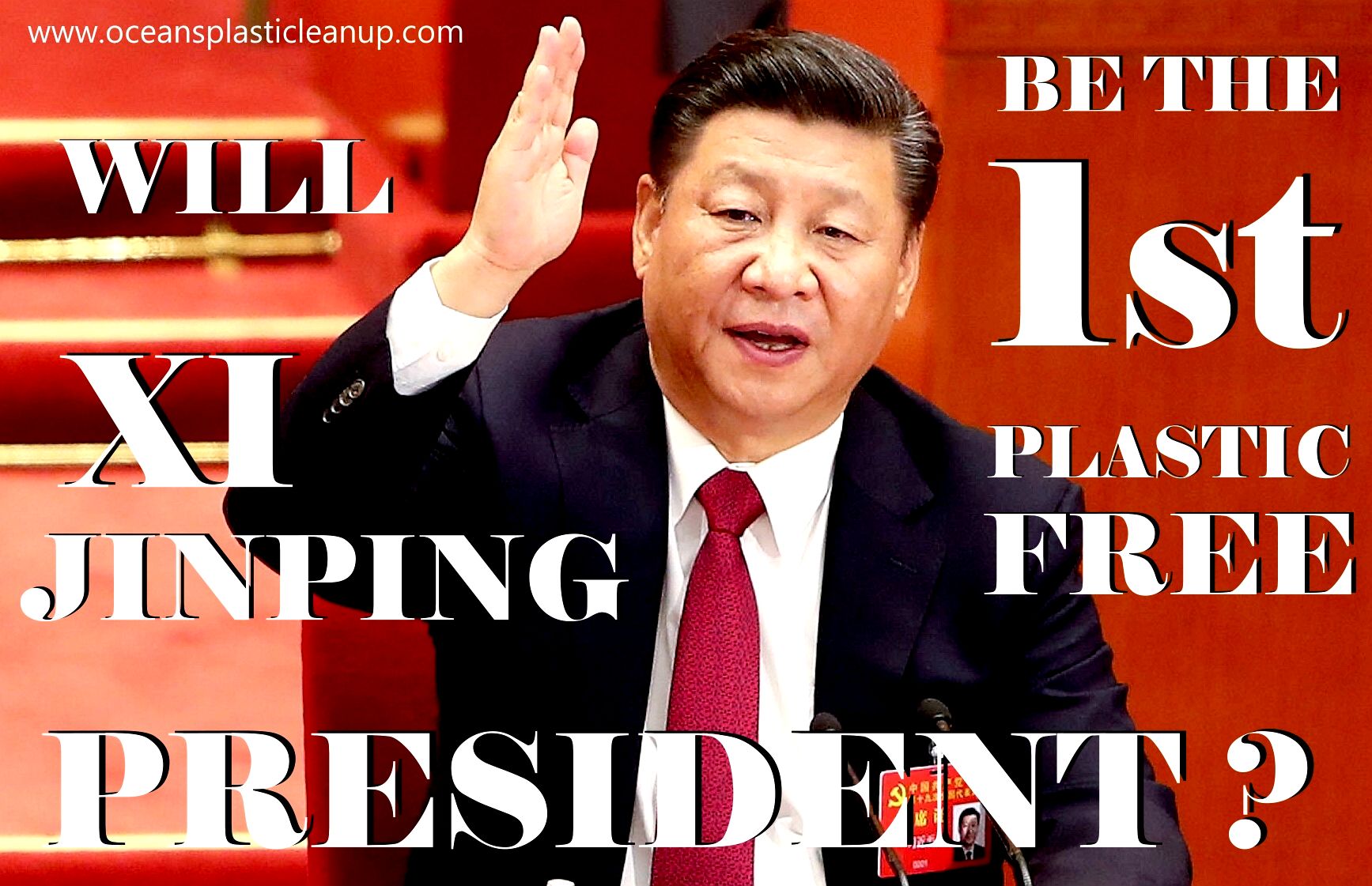
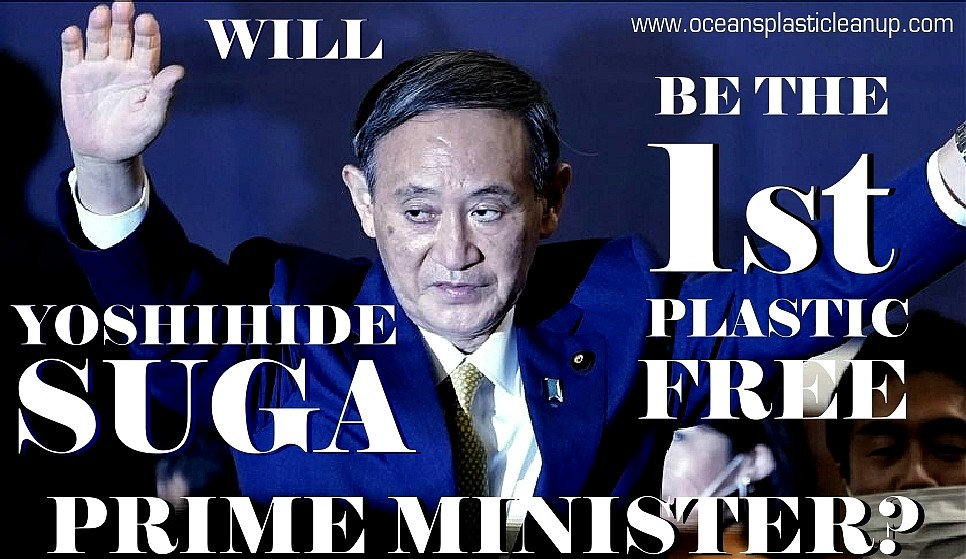
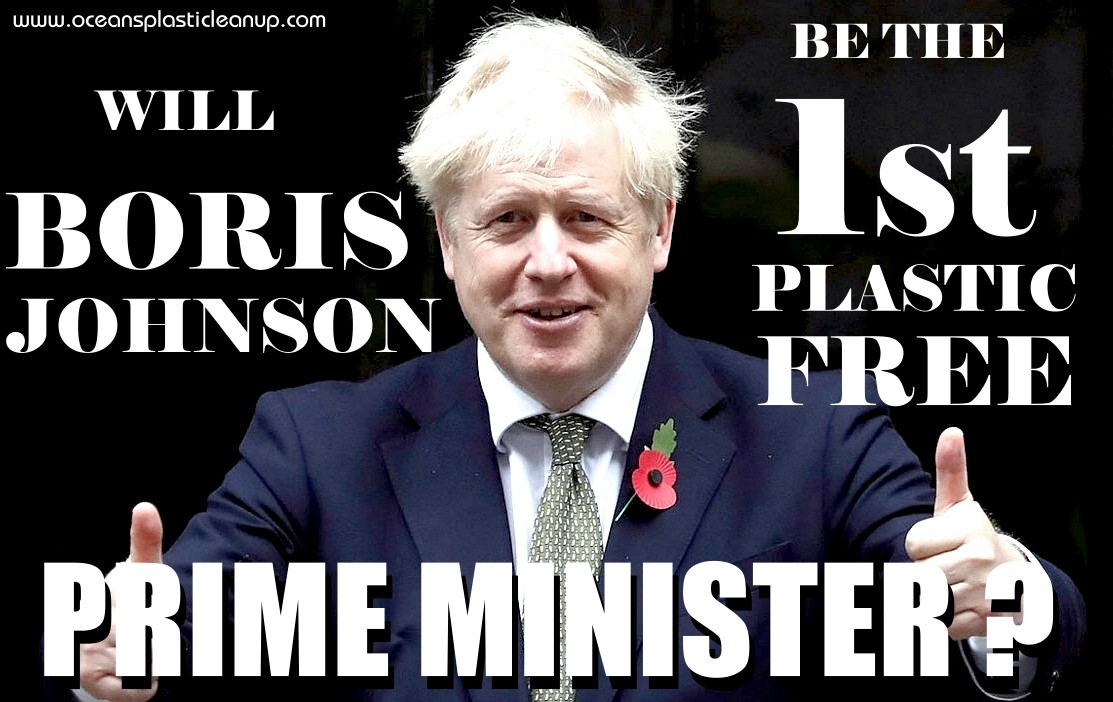 OCEAN
HEALTH - We have high hopes
that the most powerful world leaders will be pushing to secure fish health as part of
their food
security plans. This of course means ridding us of the plastic
menace with a Plan that is technically
workable, enforceable and economically sound. Ladies and
gentlemen, we give you the 7Seven
Point Plastic Plan.
LINKS
& REFERENCE
https://www.hindustantimes.com/world-news/joe-biden-should-heed-environmentalists-calls-become-first-plastic-free-prez-activist/story
https://actionnetwork.org/petitions/plasticfreepresident
https://www.latimes.com/opinion/story/2021-01-03/editorial-single-use-plastic-trash-federal-priority
https://foodprint.org/blog/single-use-plastics/
https://www.salon.com/2021/02/01/will-joe-biden-tackle-single-use-plastics_partner/
https://www.gizmodo.com.au/2021/01/the-biggest-thing-missing-from-joe-bidens-climate-plan-plastic/
https://www.breakfreefromplastic.org/pollution-act/
https://www.breakfreefromplastic.org/pollution-act/
https://actionnetwork.org/petitions/plasticfreepresident
https://www.latimes.com/opinion/story/2021-01-03/editorial-single-use-plastic-trash-federal-priority
https://foodprint.org/blog/single-use-plastics/
https://www.salon.com/2021/02/01/will-joe-biden-tackle-single-use-plastics_partner/
https://www.gizmodo.com.au/2021/01/the-biggest-thing-missing-from-joe-bidens-climate-plan-plastic/
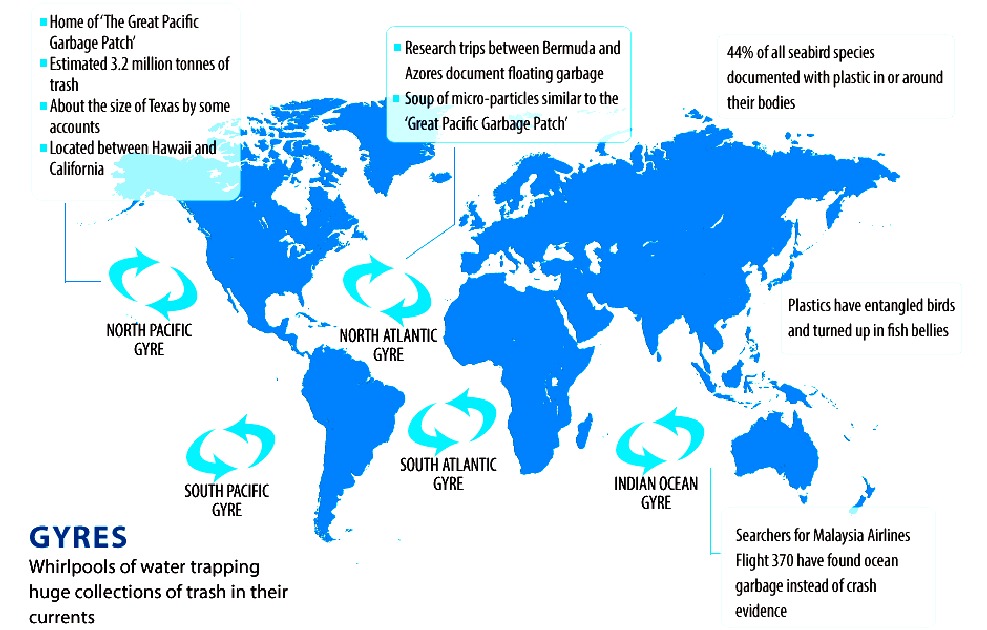
BUILD
UP
-
Plastic has accumulated in five ocean hot spots called
gyres, see here in this world map derived from information
published by 5 Gyres. unfortunately, with projects like SeaVax
being refused funding, there is little hope that our ocean might be flushed
clean. What we might hope for is that the United Nations opts for measures to
(effectively) ban plastics for single use packaging.
This website is
provided on a free basis as a public information service. copyright ©
Cleaner
Oceans Foundation Ltd (COFL) (Company
No: 4674774) 2021. Solar
Studios, BN271RF, United Kingdom.
COFL is
a not for profit company without share capital.
|












